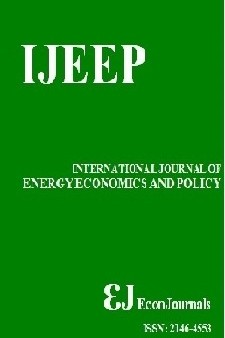A PMG Approach to the Joint Effects of Oil Price Changes and Environmental Risks on Non-Performing Loans: Evidence from Organisation of the Petroleum Exporting the Countries
A PMG Approach to the Joint Effects of Oil Price Changes and Environmental Risks on Non-Performing Loans: Evidence from Organisation of the Petroleum Exporting the Countries
Non-performing loans, oil price, environmental risks OPEC countries, pooled mean group methods,
- Başlangıç: 2011
- Yayıncı: İlhan ÖZTÜRK
Testing the Shock Effect of Some Policy Variables on Electricity Generation in Nigeria
Samuel Nnamdi Marcus, Amachukwu Chibuzo Okezie
Yusuf Opeyemi Akinwale, Ibikunle Olalekan Ogundari
Impact of Vertical Integration on Electricity Prices in Turkey
Norwegian Experience as a Promising Measure for the Russian Energy System Development
Elena S. Balashova, Elizaveta A. Gromova
Ivan A. Kapitonov, Vitaly G. Korolev, Anatolii A. Shadrin, Aleksei A. Shulus
Abimelech Paye Gbatu, Zhen Wang, Presley K Wesseh, Isaac Yak Repha Tutdel
Hasan GUNGOR, Angela Uzoamaka SİMON
Geopolitics of the Republic of Turkey’s Energy Policy
Marzieh Rahimi, Abbas Alavi Rad
The influence of Economic Growth and Electric Consumption on Pollution in South America Countries
